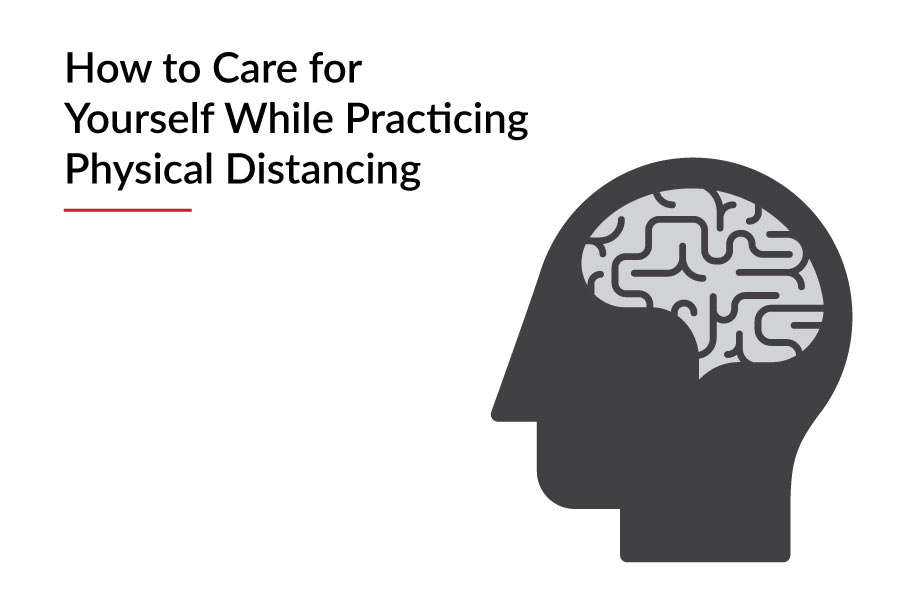While practicing physical distancing, there are easy self-care strategies that can help reduce feelings of depression and anxiety, or prevent anxiety before it even starts.
Use these tips from the MHFA curriculum to take care of your mental health while practicing physical distancing.
- Eat healthfully to keep your body in top working order.
- Exercise reduces symptoms of depression and anxiety, whether we’re working out at home or taking a solo jog around the neighborhood.
- Practice relaxation therapy. Focusing on tensing and relaxing muscle groups can help you relax voluntarily when feeling overwhelmed, stressed or anxious.
- Let light in. For some people, increased exposure to light can improve symptoms of depression. If you can, open the shades and let more sunlight in.
- Be kind to yourself! Treat yourself with the same compassion you would a friend.
- Stay connected. Even if you can’t get together face-to-face, you can stay connected to friends, family and neighbors with phone calls, text messages, video chats and social media. If you’re feeling lonely, sad or anxious, reach out to your social support networks. Share what you are feeling and offer to listen to friends or family members about their feelings. We are all experiencing this scary and uncertain time together.
- Monitor media consumption. While you might want to stay up-to the minute with COVID-19 news, too much exposure can be overwhelming. Balance media consumption with other activities you enjoy, such as reading, cooking or listening to music.
If you or someone you care about feels overwhelmed with emotions like sadness, depression or anxiety, or like you want to harm yourself or others call 911.
You can also contact the Substance Abuse and Mental Health Services Administration’s (SAMHSA) Disaster Distress Helpline at 800-985-5990, the National Suicide Prevention Lifeline at 800-273-8255 or text MHFA to 741741 to talk to a Crisis Text Line counselor.

